Eyes Focus on Season, But Croatian GDP Depends on Other Factor
June the 8th, 2021 - The tourist season is rapidly approaching and all eyes are firmly fixed on just what that will do for the domestic economy as the epidemiological situation at any given time continues to hold all the cards. With that being said, Croatian GDP depends on one other important factor, too.
As Poslovni Dnevnik/Ana Blaskovic writes, the announcement that the Croatian economy fell in the first quarter of 2021 by the least it has fallen since the beginning of the coronavirus crisis, more precisely by a mere 0.7%, was welcomed as an overture to recovery. In the turn towards the ''plus'' analysts' expectations of a significantly better performance remained firmly in the background. That means that the targeted 5.2 percent growth for 2021 (and all of the consequent revenue) will be a rather tight calculation that will focus not only on a good summer season but also peaceful autumn.
Most economists will say that it is difficult to forecast things for this year according to the first three quarters, even without the coronavirus pandemic, as Mystic Meg isn't around to do that job. Of the six analysts spoken to by Hina, three expected growth in the range of 0.7 and 4%, two expected stagnation, and one expected a decline of 6 percent.
"It's a bit hasty to come to conclusions based solely on the first quarter. Even with the data we have for the second, the picture is blurry because you have a base which is either too high or too low,'' explained Zeljko Lovrincevic from the Institute of Economics, emphasising that in the first three months of 2020, there were no coronavirus issues to really speak of, and the other three were marked by lockdowns.
"In the first six months, Croatian GDP growth is likely to be 3 to 3.5% annually. At this point, it's certain that the summer season could be good, and growth in the third quarter could reach 8-9%. With that being said, autumn remains uncertain and the last three months should have a similar dynamic to reach the planned 5.2% year-on-year. This will be possible only without an autumn wave of the virus and new restrictions,'' believes Lovrincevic, who is worried about the speed of the vaccination rollout. In order to curb the epidemic (and save the tourist season), the government has announced that 50-55% (out of 3.36 million) adults in Croatia will be vaccinated by the end of June.
23 days are left until June comes to an end, and according to the CNIPH, by June the 3rd, 1.317 million Croatian residents (39.1%) had been vaccinated with one dose, and 537,965 of them had received both, accounting for only 16% of adults. While the mass vaccination programme finally became operational after an amateur and frankly embarrassing start, a sharp drop in people being interested enough to get themselves registered for it has been noticed, meaning that the possibility of vaccinated people without the need for registration or an invitation is now a real and very likely possibility.
"Macro figures for this year are open due to the pandemic, but thanks to the relatively strong recovery of tourism, growth should be good in the 3rd and 4th quarters. Our expectations are a 5% increase in Croatian GDP in 2021 and 5.5% in 2022,'' says PBZ Croatia osiguranje macroeconomist Hrvoje Stojic, who forecasts a 4.5% budget deficit for 2021.
With a good tourist season, indicators for optimism are the growing share of exports of goods in Croatian GDP growth, stronger growth in investment and construction activities, European Union (EU) money and good indicators of personal consumption.
"If tourism surprises us and rises above our expectations, the forecasts could be adjusted upwards, so it makes more sense to talk about the direction in which the economy is moving than about the final speed of recovery, which can still vary," explained Stojic. RBA chief economist Zrinka Zivkovic Matijevic also points out that autumn is uncertain.
"There's a question of new strains, vaccinations, the duration of immunity… But I believe that, even if unfavourable scenarios come to be, Croatia will respond as before, with relatively mild measures and wouldn't just close shopping centres,'' she said, explaining this in terms of consumption and indirect taxes.
"It's not too easy to forecast, but we assume that the normalisation of movement will continue. That's why we remain with the forecast of 5.1% growth in 2021,'' she says.
The combination of the lower vaccination coverage of the population and the influx of millions of foreign tourists from countries with a diverse epidemiological picture, not to mention the confirmation of the Indian variant of coronavirus in Croatia, is understandably worrying.
Although Croatia is entering the summer with the first rebalance this year, the Minister of Finance announced the autumn reshuffling, counting on a clearer post-season picture.
With Croatian GDP projected, Zdravko Maric has a current target of 17.1 billion kuna (4.3% of Croatian GDP) of the central government deficit and 3.8% of the general government deficit.
This is a fragile balance on which a lot depends: the room for maneuver for measures to help the economy, the nation's credit rating, the implementation of the euro, all the way to the payment of salaries and pensions.
For more, follow our lifestyle section.
Epidemiologist Branko Kolaric Discusses Tourist Season and Infection Rates
June the 7th, 2021 - Croatian epidemiologist Branko Kolaric sat down recently to discuss the rapidly approaching tourist season and what that might mean for infection rates in Croatia when all the foreign tourists leave at the end of summer.
As Poslovni Dnevnik writes, epidemiologist Branko Kolaric commented on the current epidemiological situation for N1 this morning, and when speaking about the restrictions in care homes and nursing homes, he said that for the oldest and most unwell residents of such facilities, visitors should be allowed in for longer than fifteen minutes if the said visitor is vaccinated.
"The only thing left of the restrictive measures in care homes is if the resident hasn't yet been vaccinated, and was in the hospital, that after hospital treatment they go into self-isolation and that unvaccinated visitors can visit them for only fifteen minutes," Branko Kolaric told N1.
He said that the current vaccination rate across Croatian nursing homes is very good.
''We really do have a high turnout and currently there are a total of just twenty infected people living in nursing homes across Croatia. Of those who have fallen ill, the majority are unvaccinated people, but also some people who have been vaccinated. We know that the vaccine doesn't protect anyone at a level of 100 percent, but in the third wave, mortality was reduced by twenty times,'' explained Branko Kolaric, adding that he hoped that this pace of vaccination would continue so that we could enter autumn more calmly.
"We still have enough people interested in getting vaccinated and I hope that we will continue to have those people vaccinated in sufficient numbers," Branko Kolaric added.
''It's possible that we have variations and don't have a descent to zero as we had last summer and that is why it's still important to adhere to the anti-epidemic measures, avoid having too much contact with others, especially people who aren't yet vaccinated, and to avoid larger crowds, because in doing all that you can get infected,'' said Kolaric.
He also spoke about a possible easing of the country's epidemiological measures.
''I do think that the measures will be revised before the summer arrives and it's possible that the provision of wearing masks in areas where people have been vaccinated will be abolished. So, it all depends on how many people get vaccinated. That being said, we can't rely solely on vaccination, but we must also adhere to measures until we achieve collective immunity. Where vaccination coverage is low, at around 30-40 per cent, it remains possible that new waves of infection will occur. We need a very high percentage of vaccination,'' explained Kolaric.
Many countries are currently talking about the new wave of the coronavirus pandemic that awaits them and that the question is not whether or not it will happen, but how strong it will be. Asked if a new wave of infection awaits Croatia after the tourist season, Branko Kolaric said that on the one hand it is a matter of speculation, and that, taking into account the situation in the country's nursing homes, where there are ten times fewer infected people and twenty times fewer deaths, we can expect just that.
''That’s why we need to vaccinate people. We're never going to completely eliminate the virus, but it is important to reduce the number of deaths caused by it,'' concluded Branko Kolaric.
For all you need to know about coronavirus specific to Croatia, including travel, border and quarantine rules, as well as the locations of testing centres and vaccination points across the country, make sure to bookmark our dedicated COVID-19 section and choose your preferred language.
Explore Croatia's Hidden Corners with GO Adventure, Your Private Tour Specialist
June 2, 2021 - Meet GO Adventure, your go-to private tour specialist ensuring your exclusive experience of Croatia is as authentic as possible.
Now, more than ever, the promise of privacy is paramount. The appeal of small crowds and taking control of your holiday has taken precedence among travelers from all over the world. From tailor-made tours to off-the-beaten-path excursions, being in the power of your private tour is number one - and GO Adventure is there to make it happen.
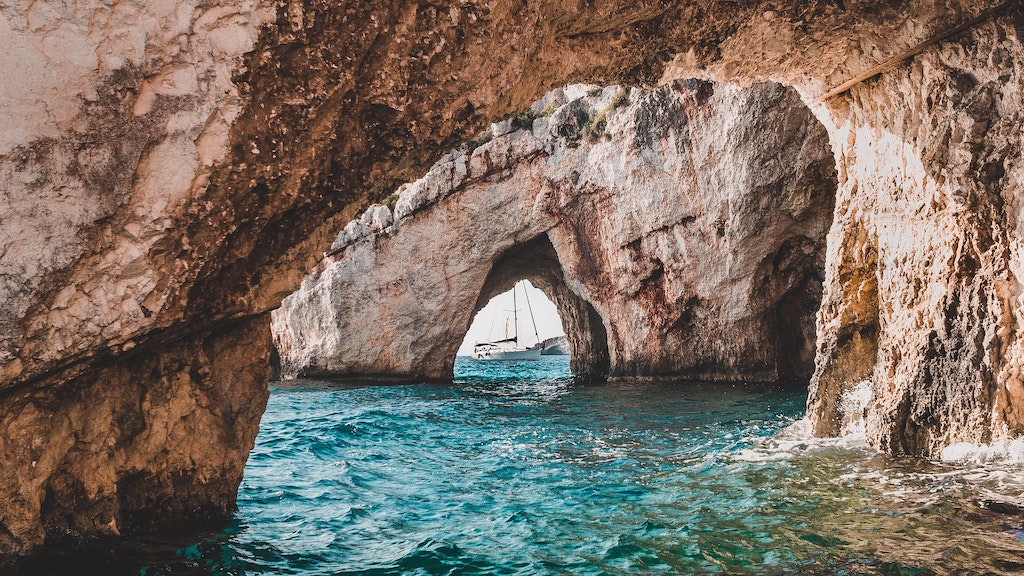
A team of 40 highly skilled individuals makes up GO Adventure, from guides with over 1000 hours on active excursions, drivers, logistics, and support to sales, office staff, and management.
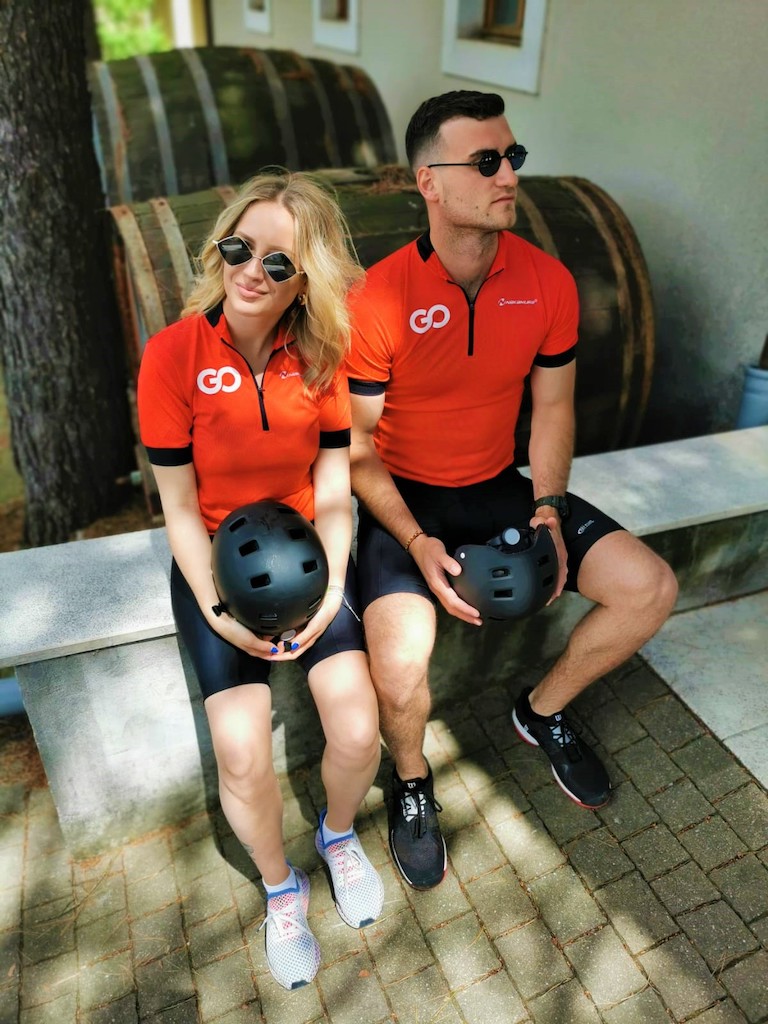
Guided by a mission to create value for their guests, partners, and co-workers, GO Adventure shares a passion for nature, adventure, and unexplored gems, heightened by top service to ensure your Croatia holiday is marked in your memory bank.
With post-pandemic times on the horizon, GO Adventure's private tours are the perfect way to spend a multi-day active vacation in Dalmatia.
So, how does it work?
GO Adventure wants to get to know you, first. Based on your wishes, the team will craft a unique itinerary tailored to the type of traveler you are. You will then get to personalize your outing, from modifying the schedule to altering the activities. Your private tour is in your hands.
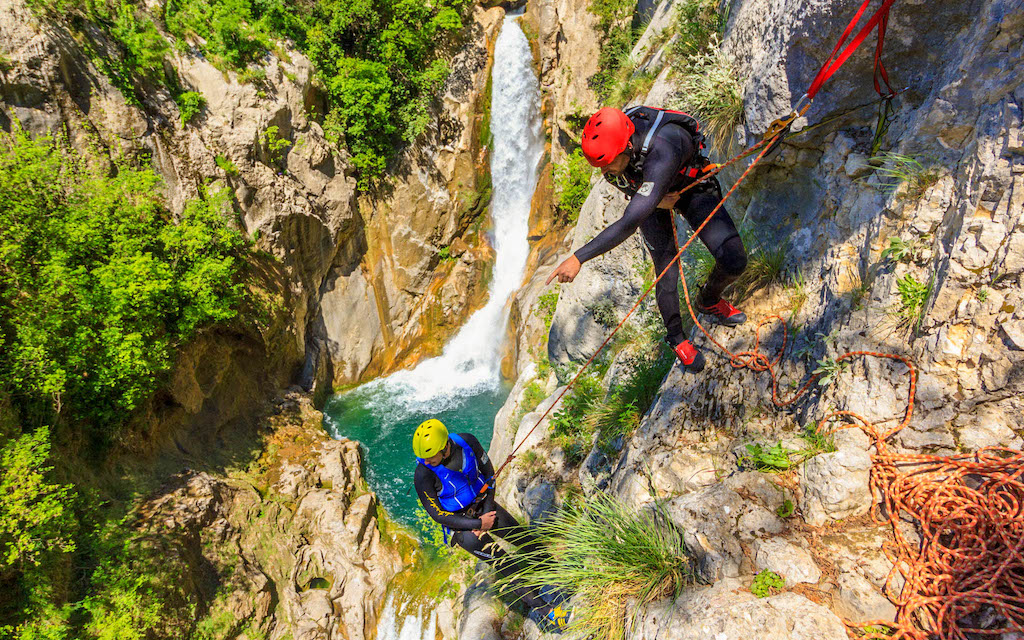
You get to decide if you want to explore popular destinations like the Blue Cave or Pakleni Islands, hop on an adrenaline-packed cycling or kayaking adventure, explore the sea on a secret fishing tour or head off the tourist tracks to hidden locations that even locals are hard-pressed to find.
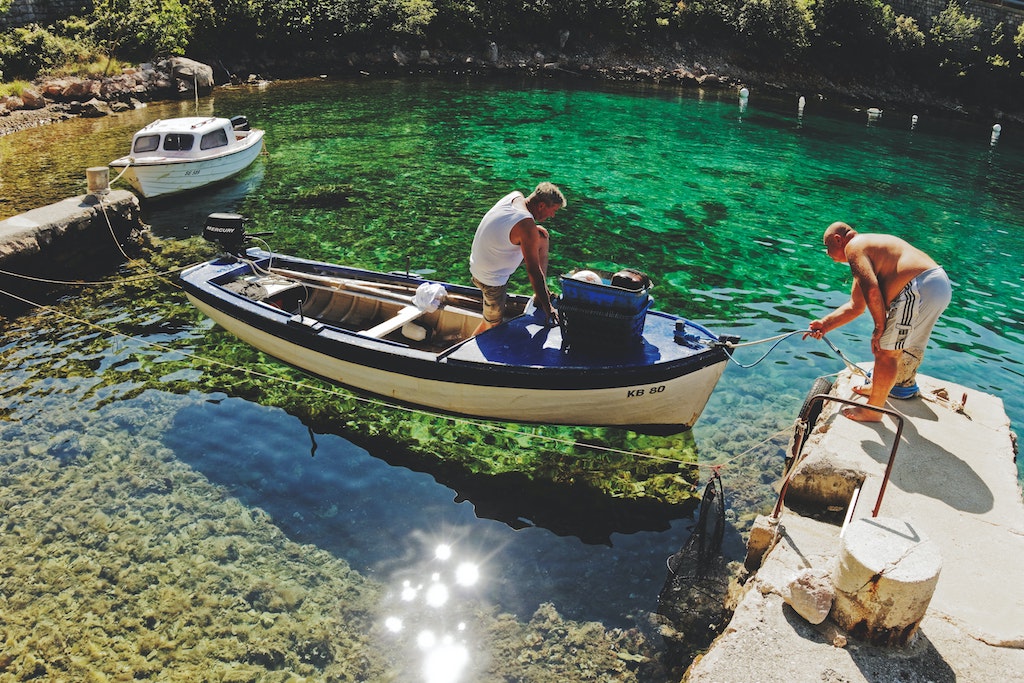
You could even swim away from the crowds on an unparalleled boat tour around Croatia's lighthouses, visit volcanic islands, and enhance the afternoon by preparing a fish lunch with the fish you catch yourselves out at sea, or set off on a sunset rafting outing crowned with a campfire dinner under the stars. One thing is certain - nothing is out of reach.

Each tour takes into consideration your age group and group factors, like if you're traveling with children, friends, or older couples, guaranteeing the comfort of each guest.
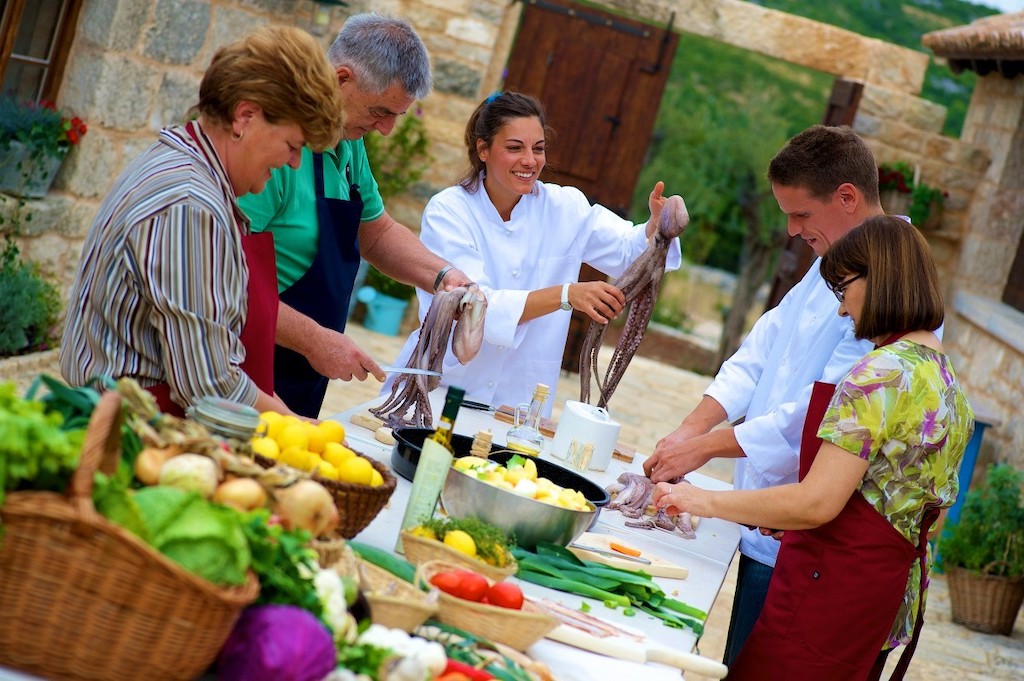
GO Adventure tours also promote local suppliers, family farms, and Croatian products, assuring the authenticity of each destination for your memorable Mediterranean vacation.
What does your private tour offer?
Depending on the tour, guests are promised a tailor-made itinerary, driver, and transfers to all desired locations. All boat trips include a skipper, adventure tours come with a specialized guide, and national park trips guarantee tickets and a front-of-the-line pass. You can even opt for a more luxurious boat on your island-hopping adventure, request VIP access, or ask that lunches and dinners be organized. Any extras will be tagged on your tour price.
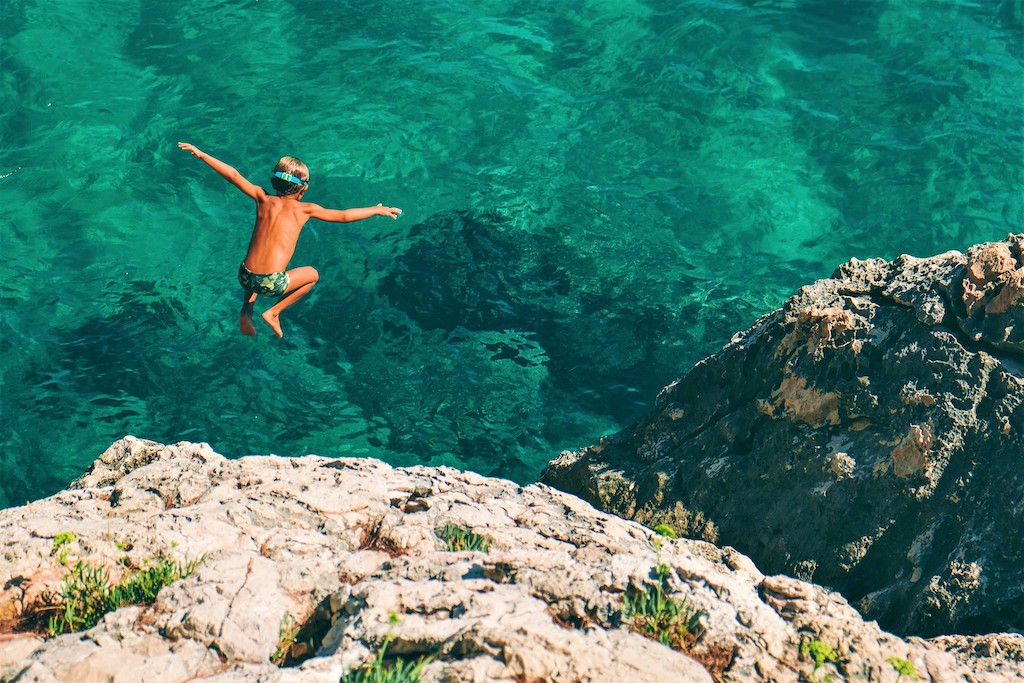
And that's not all.
Each tour has a touch of luxury, too, as Mercedes V-class vehicles escort you from one destination to the next. At the same time, the accommodation offer is designed for your desires, from a variety of hotel types and categories, luxury rooms and apartments to villas with swimming pools and holiday homes. You can even choose camps or take the road less traveled for a night in the forest!
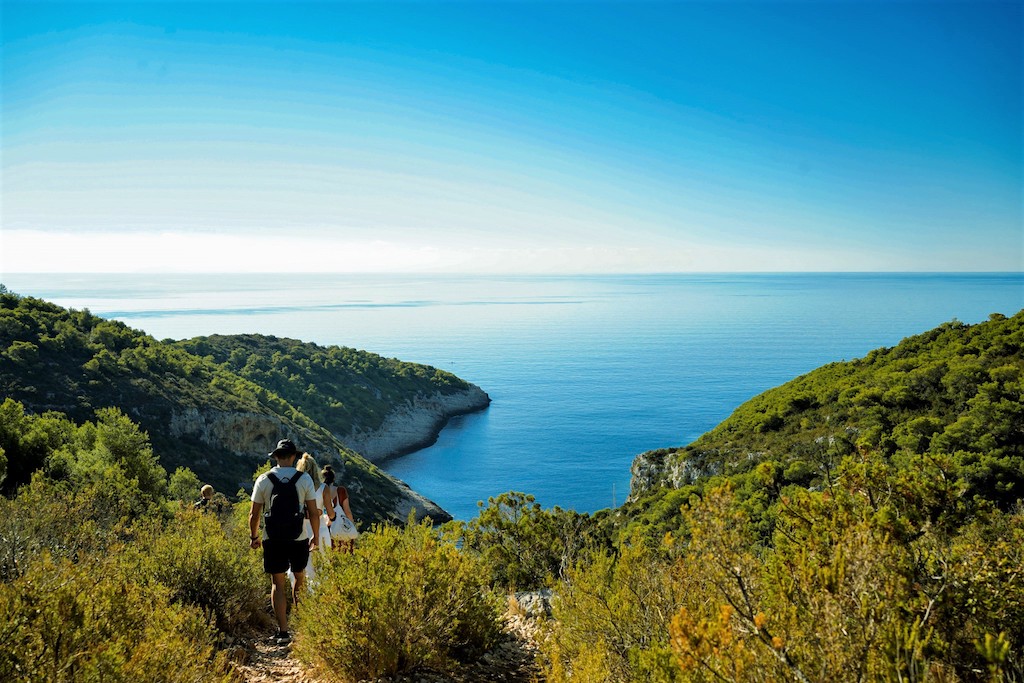
In an effort to save time while planning your holiday and enjoy the guarantee of a carefree Croatia experience, GO Adventure is on-call as your personal tour guide. You can explore GO Adventure's private tours HERE.
And if you’re not interested in a private tour? No worries! GO Adventure also offers one-day private or group tours and ready-made multi-day tours!
For more on travel in Croatia, follow TCN's dedicated page.
Hoteliers Welcoming Corpus Christi Holiday Bookings in Croatia
May 31, 2021 - Corpus Christi holiday bookings in Croatia are growing, and Croatian hoteliers are looking forward to bookings picking up even more after June 3.
HRT reports that hoteliers are more optimistic before the beginning of June than a few weeks ago because the epidemiological situation and the state of reservations and sales are better than last year. More tourists are expected around Corpus Christi, which will mark the beginning of the season.
"The epidemiological situation is improving, the framework of the border crossing regime has been defined, bilateral agreements are being worked on, and the vaccination rate is growing. With the easing of measures, optimism and a desire to travel grow, immediately evident in reservations. In some periods and some types of accommodation capacities, primarily camping and hotels of higher categories, reservations are approaching the figures from 2019," says the director of UPUHH (Association of Employers in the Croatian Hotel Industry) Bernard Zenzerović.
June without maximum occupancy, but in July and August, they are hoping for tourist crowds
However, in June, hoteliers do not expect maximum occupancy, but they hope for real tourist crowds in July and August and that they will have all facilities open. They are convinced that this year they can achieve a very good post-season, unlike last, when it was abruptly interrupted, though it is largely dependent on neighboring countries' travel regimes, especially Slovenia and Austria.
"Tourist demand is generally much better than last year. The largest demand comes from our traditional markets going to car destinations in the northern Adriatic regions. On the other hand, the situation is more uncertain in the south, which is more related to slower-recovering air traffic. Still, hoteliers believe that this will improve with the announced airlines and easing of restrictions, especially for British tourists, and that in the south, the results will be better than last year," says Zenzerović.
He also states that traditional markets, such as Germany, Austria, Slovenia, Poland, and the Czech Republic, are the 'most active' in the demand and reservations of hotels. He estimates that the reservations of domestic tourists are 'very well maintained.'
The strongest booking and sales channels are direct hotel channels, especially because of the flexibility that hoteliers offer this way, which guests expect due to the situation while booking through tour operators is much slower than in the years before the pandemic.
As they expect better physical traffic with more arrivals and overnight stays of tourists, hoteliers expect a generally better summer and business year than last year, which is primarily based on greater expected stability and longer season duration.
A 'war' on prices in the Mediterranean can be expected, but not a significant increase or decrease
"Although we have vaccines this year and vaccinations are growing rapidly, last year's experience must be a reminder that we must be disciplined and do our homework better this year," says the director of UPUHH, emphasizing that this year, unlike last year, the market is more active offered by all Mediterranean countries, which is why a kind of 'price war' can be expected.
Prices, as always, are defined by supply and demand, but Zenzerović says that they do not expect any significant horizontal growth of prices nor that there will be a need to lower them.
"Higher quality facilities have been proven to achieve better results at all levels, and that is the path we must take. Those who continuously invest in quality will achieve better results, and I believe that this is now clear to everyone in tourism," he says.
They will need significantly more workers than last year
When asked whether hoteliers have enough workers for this season and whether they will employ more seasonal workers, perhaps foreigners, Zenzerović answered that hoteliers must continue measures to preserve jobs for the final preparation of the season until the traffic reaches a level that will allow normalization of business.
As for additional demand, we will certainly need additional seasonal workers. Decisions on their number will be made depending on the development of the season and tourist demand. Still, from today's perspective, we see that we will need significantly more workers than last year, waiters, chefs, support workers, and domestic workers, who are most in-demand during the season," says the director of UPUHH.
Hoteliers will surely first look for ways to hire people from their communities. From other parts of Croatia, i.e., domestic, and only then, look for workers from other countries, primarily from those in the area.
"It is difficult to talk about the numbers at the moment, but we estimate that a significantly smaller number of foreign workers will be needed than in 2019, a maximum of about ten thousand of them," Zenzerović predicts.
For more about travel in Croatia, follow TCN's dedicated page.
85,000 Tourists Total: More Germans in Croatia than All Foreigners Combined
May 29, 2021 - According to the eVisitor system, there are currently 85,000 tourists in Croatia. Germans in Croatia take the lead, who are already Croatia's most loyal and most numerous foreign guests. Namely, there are more German tourists in Croatia than all other foreigners combined!
To put things into perspective, of the 85,000 tourists in Croatia, as many as 40,000 are Germans. As of Saturday, Slovaks, Hungarians, and Czechs will arrive en masse, and 30,000 have already bought tickets to the Adriatic, 24 Sata reported on Friday.
Last week, the daily number of tourists in Croatia was around a modest 45,000. Last weekend and the Pentecost, as expected, brought growth and another 40,000 new guests, and the good news is that they are all still staying on the Croatian coast.
Croatian tourists come in second, with 12,000 currently in Croatian tourist destinations, followed by Slovenes (5,500), Austrians (5,000), Poles (4,000), Czechs (3,000), and even, which is somewhat unexpected, 1,200 American tourists!
There are still much fewer guests than the record 2019 when 230,000 tourists were registered in Croatia on the same day in May, but it is much better than last year when Croatia counted only 22,000 guests on the same day in May.
Many, therefore, consider the current result a good start and confirmation that in 2021, more guests and overnight stays can be expected than last year and at least 60 percent of tourist traffic than what the hosts had in the best tourist year (2019) so far.
As of Saturday, this will be supported by mass arrivals from the Czech Republic, Slovakia, and Hungary. Namely, the first train with Czech tourists left Prague on Friday - with about 400 tourists. RegioJet trains will regularly bring them on holiday to the Adriatic this summer!
Follow the latest on flights to Croatia HERE and the latest travel updates and COVID-19 news from Croatia HERE.
For more on travel in Croatia, follow TCN's dedicated page.
As Pandemic Continues, Podstrana Pools in Private Houses Sought
May the 26th, 2021 - What exactly do tourists in Croatia want as the situation with the ongoing coronavirus pandemic continues to alter as time goes on? Podstrana pools have been popular since tourists began arriving and the epidemiological situation becomes more favourable, but the market trends have altered since the appearance of the virus, and regardless of the vaccine.
As Poslovni Dnevnik writes, in the rugged hills above Podstrana near Split, almost every single house, some of them being very old, has been converted for the purposes of tourism. Some are full of glass and boast a modern appearance and others have kept their Dalmatian character with traditional stone, most of them, regardless of their styles, come with pools. These Podstrana pools have never been more sought after by visitors than now.
Luka is just one such homeowner to have turned to tourism and done up what he inherited in the hills above Podstrana, a location which offers not only isolation but some stunning views over the Split area and the glorious Adriatic sea. From Luka's Podstrana pool and terrace, the view of Split lying below is precisely what draws attention.
''They like to be left in peace, they don't mix with others on the beach," Luka Bakota told Dnevnik.hr when discussing what tourists in Croatia now seek the most as the pandemic continues to change habits and desires.
In a period ten years, more than 150 holiday homes with swimming pools have been built in Podstrana alone, and one owner, Mario Tomasevic, recovered following contracting COVID-19 back at the time around Easter this year.
"I wouldn't wish it on my worst enemy, it was utterly horrendous," Tomasevic stated as he recalled his personal experience with the infection caused by the novel coronavirus, SARS-CoV-2.
Having unpleasant personal experience firmly under his belt, Mario more than understands why some guests want to be very careful and seek out isolation and safety when in Croatia. Now better, he now has guests and some good reservations to speak of, among them a duo from Germany.
''We came in earlier years and there was no pool. Now we've come and the pool is there. We feel like VIP guests,'' said Peter from Germant. Several more villas are being built nearby, also with swimming pools. The Podstrana Tourist Board has also confirmed that Podstrana pools are in great demand, and they're recording much better overall numbers much better than they did last year.
"We have 10,000 overnight stays, that's 40 percent better than the way things were last year," assured Zdravka Svenda, the director of the Podstrana Tourist Board.
For more about tourists in Croatia, follow our dedicated travel section.
Wealthier Guests Booking Croatian Holidays as Summer Reservations Begin
May the 22nd, 2021 - Croatian holidays are being sought after as the epidemiological picture across most of Europe becomes more favourable and the vaccination rollout picks up its pace. It seems that when it comes to guests with higher paying power and deeper pockets, there isn't much to question when it comes to their arrival this summer.
As Poslovni Dnevnik/Suzana Varosanec writes, there has been some excellent news circulating about this tourist season, which is hopefully going to be significantly better than it was last year. Even for those guests who prefer to stay in other types of accommodation, the outlook currently looks reassuring for Croatian holidays when compared to the summer of 2020.
In the reservation structure of the Boutique Hotel Vestibul Palace in Split from the Small Luxury Hotels of the World (SLH) group, 35 percent of reservations refer to guest members of that group.
SLH has six hotels operating in the Republic of Croatia - in addition to this one owned by Nenad Nizic, there are also D-Resort Sibenik, Boutique Hotel Alhambra Mali Losinj, San Canzian Village & Hotel in Central Istria and Villa Orsula and Hotel Excelsior in Dubrovnik.
Additional safety protocols for Croatian holidays in 2021
Those hotels all have good announcements for the second half of June, while their booking in large numbers has started for the months of July and August. According to Nizic, the president of the Group of Unique Luxury Hotels Stories at the Association of Hoteliers of the Croatian Chamber of Commerce (HGK), a lot of these reservations depend on customers being able to rely on air companies, which hasn't been easy throughout the pandemic, although some are more easily driven to.
The aforementioned group boasts 18 hotels from down in Dubrovnik all the way up to Porec, Istria and Kvarner are classed as destinations foreign guests can drive to, and they naturally take the lead with booking from June onwards, but for their hotels in Dubrovnik, Zadar, Split and Sibenik and on the islands where their members operate - Hvar, Solta and Korcula, a lot is riding on airlines running and people trusting them to do so properly.
"Given the announcements of more direct flights, the number of which will increase by 20 percent through June to a total of about 45 percent, everything will likely come to life quite rapidly, and in the heart of the season even more so. For the members of our group, occupancy is expected at the levels of 65-70 percent, significantly more than last year when the occupancy was around 50 percent.
Guests with deeper pockets arriving in Croatia this year aren't in question whatsoever, which will significantly increase our results compared to 2020,'' assured Nizic, adding that a large number of their members are also part of large global chains, and are represented by SLH through the chain Relais & Chateaux (Zadar Bastion Heritage Hotel, Meneghetti in Bale, Bevanda in Opatija and the Lesic Dimitri Palace on Korcula).
When it comes to the structure of guests, in the first place are tourists from outside Europe, more specifically from the United States, and while this large emitting market is opening up to travel as the vaccination process continues, evidence of a reason to be in Croatia such as proof of having paid for accommodation is still needed, and this factor also instills an additional sense of safety.
"We're glad that all the trends indicate that the tourism sector is moving back towards normalisation, for good results we need a continuous good epidemiological situation. We're looking forward to participating as the Stories Group next week in the first live event this year in Montenegro at the Adriatic Luxury workshop, which will bring together tourism entities from across the region as well as tuxury tourism agents from Ukraine, Russia, Belarus, Kazakhstan and Azerbaijan. These markets proved to be extremely important last year and we expect increased demand this year as well,'' stated Nizic.
The Russians are also very interested in coming to Croatia...
The fact that Croatia, as the first of the European countries to open up to the Russian market, is high on the list of priority destinations for the Russian tourism sector, has also been confirmed by the director of the Croatian National Tourist Board (HTZ) in Russia, Rajko Ruzicka.
Safety protocols in line with Croatia's public health recommendations, the “Safe Stay in Croatia” campaign, the public health regulations in countries that are Croatia's key emitting markets, so-called COVID passports with a more lenient regime for cross-border travel by international airlines, all speak in favour of a much better season for Croatian holidays than we had before the advent of the vaccine last year.
When it comes to the niche of luxury guests booking Croatian holidays, the indicator is the already relatively strong increase in the number of reservations being made from America, due to the announcement of the establishment of an air bridge between the United States and Croatia.
Such are the results of the reservations of the travel agency Croatia Luxury Rent, owned by Josip Stulic. Since the beginning of May, that company has recorded an extremely high growth in the number of bookings, in the first two weeks of May, they've seen a massive 100 percent increase when compared to April. This high growth in the number of bookings from the US is accompanied by those from the neighbouring Canadian market, and they also have good data from here in Europe, more precisely from the British and Scandinavian markets.
Connected to the USA and Russia by new flights, with air connections of 44 airlines from a total of 72 destinations, the number of passengers and air connections is finally expected to increase at Dubrovnik Airport during the second half of June.
For more, follow out dedicated travel section.
What Awaits Croatian Tourism Sector This Season, Post-Pandemic?
May the 18th, 2021 - What will this season look like for the Croatian tourism sector, and what awaits the pandemic-devastated industry when the vaccination rollout finally brings the ongoing coronavirus pandemic to an end? These are just a couple of the many questions hanging over the head of the season, seasons to come and all countries which rely heavily on tourism - including Croatia.
As Novac/Barbara Ban writes, a look into just how the Croatian tourism sector will develop after the pandemic ends, what awaits the country this season and the impact of the development of transport infrastructure on tourist flows are all topics that will be addressed by traffic and tourism experts this Tuesday.
Starting at 10:00, the "Spring & Tourism Masterclass" conference will be held, organised by Jutarnji list and the Edward Bernays University in Zagreb.
It's a project which, through a series of scientific-professional round tables, will bring together eminent Croatian and foreign experts and scientists in the field of communication management and tourism, as well as other related individuals, businessmen and various dignitaries from various walks of public life who contribute to the development of these two areas or have a significant impact on them.
After the introductory presentation of the director of the Institute of Tourism, Damir Kresic, two round tables will be held. The first will be on the topic of post-pandemic tourism, and will be given by Kristjan Stanicic, the director of the Main Office of the Croatian National Tourist Board, Josipa Jutt Ferlan, the director of the Hilton Hotel Cluster, Tomislav Fain, the president of the Association of Croatian Travel Agencies, Kresimir Dabo, the head of tourism (Bernays), and Damir Kresic, the director of the Institute of Tourism.
After that, a panel discussion will be held on the topic of the importance of transport infrastructure for the development of Croatian tourism and the participants will be Transport Minister Oleg Butkovic, doc. dr. sc. Marko Slavulj, the head of the Department of Urban Transport Technology at the Faculty of Transport and Traffic Engineering in Zagreb, Boris Huzjan, the director of HAC, and Djuro Lubura, an eminent expert in new technologies. That round table will be chaired by journalist Kresimir Zabec.
The conference will be held live at the Edward Bernays University in Zagreb without the presence of an audience due to the unfavourable epidemiological situation. Everyone interested in the future of the Croatian tourism sector can follow it live on Jutarnji.hr and on the social media platforms of the aforementioned higher education institution.
For more, follow our dedicated travel section.
Croatian Agency Irundo and IT Company Rentlio Join Forces for Tourism
May the 16th, 2021 - The Croatian agency Irundo, which is one of the leading property management agencies in the country, has signed a cooperation agreement with the Croatian IT company Rentlio this past week.
As Poslovni Dnevnik/Lucija Spiljak writes, as was announced, after many years of using foreign PMS and channel manager systems, the Croatian agency Irundo is preparing for the recovery of the domestic tourism sector and the normalisation of travel again, all of which in their eyes will begin with Rentlio - a leading domestic travel-tech company from Zadar. With this partnership, a new phase of the Croatian agency Irundo's digitalisation begins with the aim of improving business and further raising the quality of the services they provide.
“From the very beginning of our business, we based everything online. For the last ten years, we've used foreign suppliers of both PMS and channel managers. After many years of experience and monitoring Rentlio, we as market leaders have decided to utilise this Croatian travel-tech leader and we look forward to future cooperation with the development of our business and Rentlio itself as a product,'' said Irundo's CEO Tomislav Zovko.
The synergy effects of this collaboration will be most visible in the further development and implementation of Rentlio through the entire Irundo ERP system, ensuring that owners who entrust their properties to Irundo's property management receive the highest level of service from both an operational and technological perspective.
Since its founding back in 2011 until today, the Croatian agency Irundo has gathered in its portfolio more than 100 high quality apartments in various city-break destinations such as Rovinj, Zagreb, Dubrovnik and Split. The focus on online business enables Irundo to monitor the quality of locally dispersed business and create a successful sales strategy.
On the other hand, Rentlio, as a flexible cloud-based operating system designed to manage tourist facilities, simply adapts to doing this type of business. The benefits of managing reservations, prices and guests from one place for an unlimited number of facilities and teams in different locations greatly facilitates the business of property management agencies like Irundo.
Currently, Rentlio is used in more than 8,000 accommodation units across more than 40 different countries, and in recent years it has become a leader in the digital transformation of hotels, small renters, hostels and even property management agencies.
“We at Rentlio believe that technology will play a key role in maintaining the competitiveness of tourism facilities in the post-COVID era. This crisis has significantly accelerated the processes of digitalisation, which we're witnessing every day. It's no longer disputable that the guests of the future are digital guests,'' said Marko Misulic, the CEO of Rentlio.
Although forecasts of tourism recovery differ as the pandemic continues, the slowdown in a large number of tourism activities has opened up space for the implementation of digitalisation and redefining business models in tourism. Regardless of reservations, sales strategies, communication or marketing, the use of modern and quality IT solutions in tourism has become absolutely necessary.
For more, follow our dedicated business section.
Focus Placed on Exclusive Hvar Weddings as Summer Approaches
May the 16th, 2021 - Exclusive Hvar weddings are being given the limelight as the summer season rapidly approaches and Croatian tourism is left vulnerable to the instability and difficulties of the ongoing coronavirus pandemic yet again.
As Poslovni Dnevnik/Marta Duic writes, for many years now, beautiful Hvar Town has been one of the most desirable destinations for organising weddings in all of Croatia. One of the most popular holiday destinations for many visitors from all over the world, it is an ideal place where many guests from all over the world want to tie the knot.
With an ideal climate of "2700 hours of sunshine a year", Hvar offers incredible wedding scenery, rich cultural heritage, hidden coves, terraces and a complete offer for all sorts of holidays of all guests. To complete the story, Hvar has some of the very best hotels, restaurants and famous wineries. This was recognised by the Tourist Board of Hvar Town, which supported this exclusive Hvar weddings project, within which numerous initiatives aimed at positioning Hvar in this regard have been readily launched.
One of the first steps in the exclusive Hvar weddings project process was to gather together as many partners as possible who are engaged in or participate in the organisation of weddings on the island of Hvar in order to establish regular communication and cooperation with them. In order to further improve and develop this tourist product, and brand Hvar Town as a wedding destination, the Promessi W&E and Wed our way from Split agencies, in cooperation with the group Suncani Hvar, have implemented concrete measures of cooperation and development with numerous partners from the county and from further afield.
In addition to aerial shots of various jaw-dropping locations, two stylised shoots were organised in numerous specific locations of Hvar Town, such as at the unique Fortica, the nearby islands and more. With numerous local partners and established professionals in the wedding industry from across Croatia, the goal was to show the natural resources of the island, as well as its rich cultural heritage and gastronomic offer.
"At the time of the coronavirus pandemic, when destination weddings have been most affected for two years in a row now, the joint work of many participants in this project is actively working to promote Hvar and Croatia as a wedding destination and support this product. This material will be used to promote Hvar on various wedding and tourist platforms, YouTube channels, across social media, in specialised magazines, and also to use it for the preparation of promotional materials for fairs and targeted presentations. The further plan of cooperation includes numerous activities, including creating a list of the most beautiful locations for weddings, certification, organising an inspiring round table for exchanging experiences, organising educational lectures, quality standardisation, etc,'' explained Ivana Knezovic from Promessi W&E from Split.
The exclusive Hvar weddings project participants believe that the development of wedding content such as this can significantly mitigate the effects of the pandemic on tourism, strengthen the pre- and post-season, significantly increase the income of the entire local community and promote underdeveloped tourist areas and small businesses on the island.
For more, follow our travel section.


